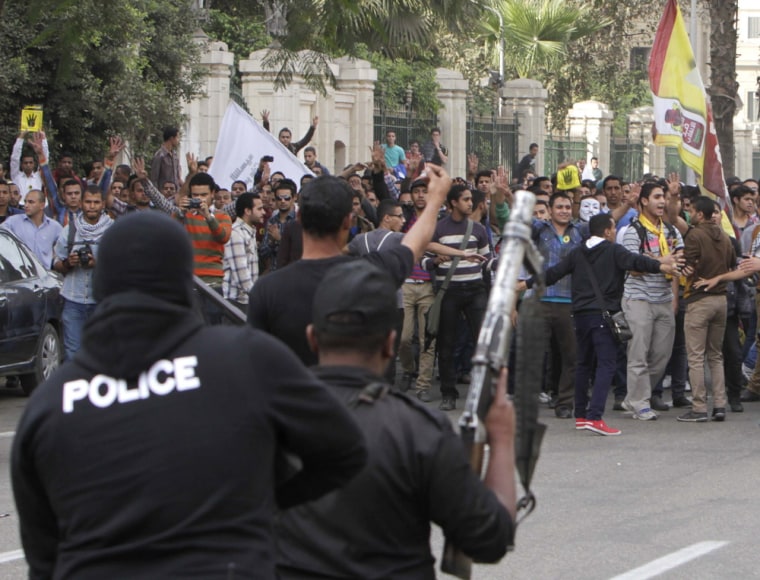CAIRO — Egyptian security forces on Monday fired tear-gas to disperse university students who had defied a new law that restricts demonstrations, the state news agency reported.
Students of Al-Azhar University and Assiut University in Assiut province, south of Cairo, staged a protest, chanting against the army and police in defiance of the new law, passed on Sunday, which bans protests without prior police approval.
In the first application of the new law, the Interior Ministry approved requests on Monday for protests by lawyers and political activists in front of the lawyers' syndicate in Cairo and the State Council in Giza, it said on its Facebook page.
In another statement, it issued a warning to supporters of the Muslim Brotherhood, who it said were planning a protest on Tuesday in Giza province, near the pyramids, with the goal of disrupting traffic and harming tourism.
"The Interior Ministry is determined to implement the law and confront these attempts with all force and decisiveness according to what is guaranteed by the law," the ministry said.
Egypt has experienced some of its worst civilian violence in decades after the army, prompted by mass protests, ousted the country's first democratically elected leader, Mohamed Morsi, on July 3. It has since introduced a political roadmap that will lead to new elections next year.
Hundreds of his supporters were killed when security forces stormed two pro-Morsi camps on August 14 and thousands were arrested under a crackdown against members of his Muslim Brotherhood group, whom the government accuses of supporting violence and terrorism.
The Muslim Brotherhood denies any links to violence and has called the army's ousting of Morsi a military coup.
Activists have described the new law on demonstrations as a violation of their right to protest and have vowed to defy it. Egypt has ousted two presidents in less than three years through mass protests.
"The unfair protest law will be broken," said Ahmed Mahler, whose April 6 movement helped lead the uprising against autocratic leader Hosni Mubarak in 2011.
